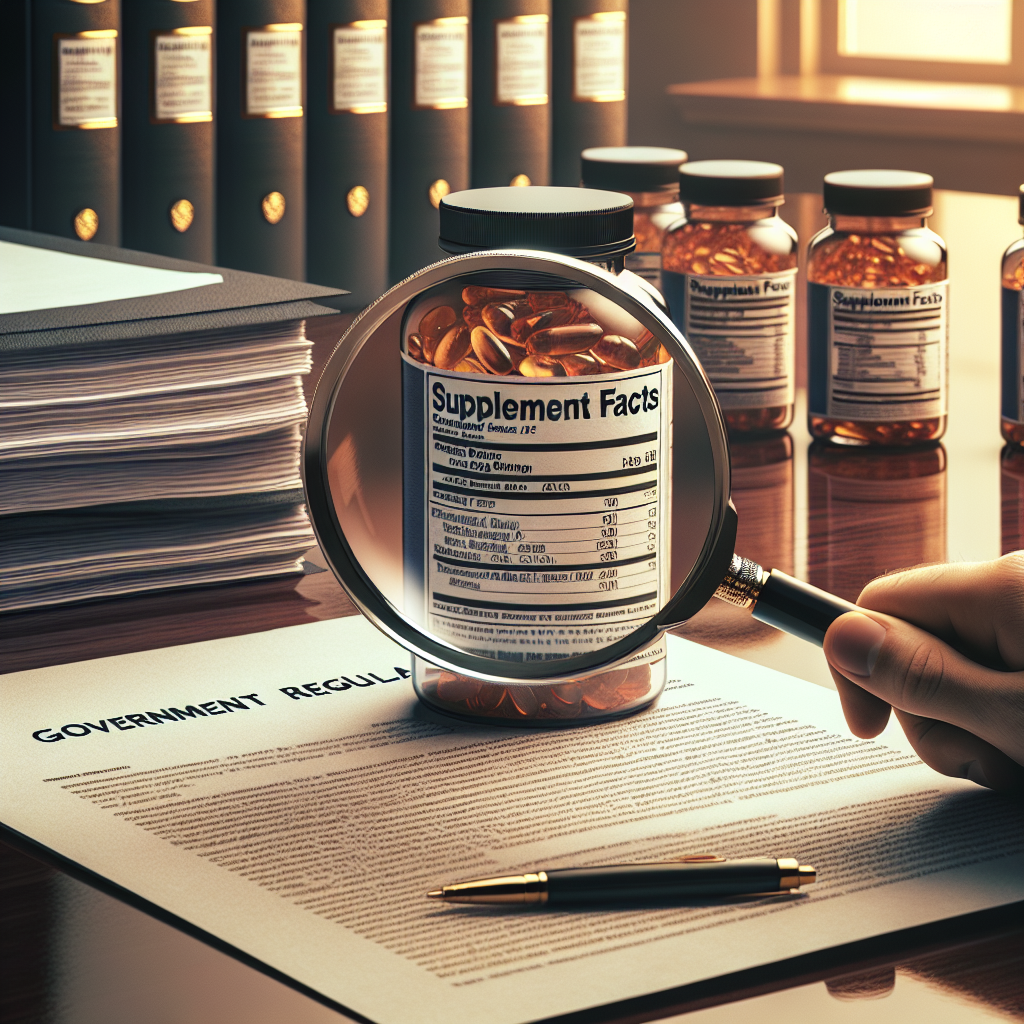Understanding FDA disclaimer requirements is essential for supplement manufacturers to avoid penalties while building consumer trust and maintaining market position.
In the rapidly evolving dietary supplement industry, regulatory compliance can make or break your business. At the heart of this compliance landscape sits the FDA disclaimer for supplements—a seemingly simple statement that carries enormous legal weight. For manufacturers navigating the complex terrain of supplement regulations, understanding these disclaimers isn’t just good practice—it’s essential for survival in an increasingly scrutinized marketplace.
The FDA disclaimer serves as a critical bridge between manufacturer claims and consumer protection, ensuring transparency while enabling companies to communicate the potential benefits of their products. This delicate balance embodies the principle that consumers deserve both information and protection—a philosophy that aligns perfectly with the industry’s movement toward greater transparency and accountability.
The Legal Foundation of FDA Disclaimers
Understanding the legal framework that necessitates FDA disclaimers is crucial for supplement manufacturers seeking to navigate the regulatory landscape successfully.
The FDA disclaimer for supplements isn’t arbitrary—it’s rooted in specific legislation designed to create a framework that allows supplements to exist in their own regulatory category. In 1994, Congress passed the Dietary Supplement Health and Education Act (DSHEA), which established the regulatory framework that governs supplements to this day. This landmark legislation carved out a separate regulatory path for dietary supplements, distinct from both foods and drugs.
Under DSHEA, supplements can make certain claims about how they affect the structure or function of the body, but they cannot claim to treat, cure, prevent, or diagnose diseases—claims reserved exclusively for FDA-approved medications. This distinction necessitates the now-familiar disclaimer: “These statements have not been evaluated by the Food and Drug Administration. This product is not intended to diagnose, treat, cure, or prevent any disease.”
This disclaimer must appear on product labels whenever structure/function claims are made. It must be clearly visible, placed in a text box, separated from other information, and presented in boldface type. These requirements aren’t merely suggestions—they’re legal mandates that, when ignored, can result in significant penalties.
The intent behind these requirements reflects a commitment to consumer education and empowerment. By clearly distinguishing between approved drug claims and supplement claims, the FDA disclaimer for supplements helps consumers make more informed decisions about the products they purchase. This transparency creates a foundation of trust between manufacturers and consumers, establishing expectations about what supplements can reasonably deliver.
Required Elements of FDA Disclaimers
Compliance with FDA disclaimer requirements for supplements involves several specific elements that manufacturers must include:
The Standard Disclaimer Text: The exact wording (“These statements have not been evaluated by the Food and Drug Administration. This product is not intended to diagnose, treat, cure, or prevent any disease.”) cannot be altered or abbreviated.
Proper Display: The disclaimer must be displayed prominently in a text box, separate from other information on the label.
Typography Requirements: The text must appear in boldface type and be easily readable.
Placement: The disclaimer must appear on the same panel as any structure/function claims, or with the nutrition information.
Digital Compliance: For online sales, the disclaimer must also appear with any structure/function claims made on websites, marketing materials, or social media.
Beyond these technical requirements, the spirit of the FDA disclaimer for supplements emphasizes truthful labeling. Supplement manufacturers must ensure that all ingredients are accurately listed, that quantities are truthfully represented, and that no misleading imagery or implications contradict the FDA disclaimer.
The commitment to accurate labeling reflects a deeper industry value—that quality and transparency go hand in hand. When manufacturers maintain rigorous quality standards throughout their production process and then accurately represent their products through compliant labeling, they build lasting trust with consumers who increasingly demand both effectiveness and honesty.
Common Misunderstandings About FDA Disclaimers
Despite their prevalence, FDA disclaimers for supplements remain widely misunderstood by both consumers and sometimes even manufacturers. These misunderstandings can lead to compliance issues and consumer confusion that ultimately undermines the industry’s credibility.
One prevalent misconception is that the presence of an FDA disclaimer means the product hasn’t been regulated at all. In reality, while the FDA doesn’t pre-approve supplement claims, it does regulate supplements through manufacturing standards (cGMPs), ingredient safety requirements, and post-market surveillance. The disclaimer simply clarifies the specific claims haven’t been evaluated—not that the product exists outside regulatory oversight.
Another common misunderstanding revolves around product safety. Some consumers mistakenly believe the disclaimer indicates the product hasn’t been tested for safety, while others incorrectly assume that supplements with FDA disclaimers aren’t effective. Neither interpretation is accurate. The disclaimer specifically addresses claims about the product’s effects, not its safety profile or efficacy.
For manufacturers, a dangerous misconception is that the disclaimer provides a “safe harbor” for making any type of claim. This couldn’t be further from truth. The FDA disclaimer for supplements doesn’t protect companies that make disease claims or false statements about their products. The disclaimer complements truthful structure/function claims—it doesn’t replace or shield misleading ones.
Forward-thinking supplement manufacturers recognize the opportunity to educate consumers about these disclaimers rather than merely including them as regulatory checkboxes. By proactively explaining what the disclaimer means (and doesn’t mean), companies can foster more informed purchasing decisions and set appropriate expectations about their products.
This educational approach transforms a compliance requirement into a trust-building opportunity. When manufacturers explain that their structure/function claims represent their understanding of the scientific evidence without FDA evaluation, they demonstrate both regulatory compliance and respect for consumer intelligence.
The Consequences of Non-Compliance
The penalties for non-compliance with FDA disclaimer requirements can be severe and far-reaching, potentially threatening your company’s financial stability and market position.
The consequences of failing to properly implement the FDA disclaimer for supplements can be severe and multifaceted, potentially threatening a company’s financial stability and market position.
When a supplement manufacturer fails to include proper disclaimers or includes them incorrectly, the FDA typically begins with warning letters. While these may seem like mere formalities, they represent the beginning of a regulatory process that can escalate quickly. Warning letters become public record, affecting reputation and often triggering increased scrutiny from retailers, distributors, and consumers.
If violations aren’t promptly addressed, the FDA has an extensive array of enforcement tools at its disposal:
- Mandatory recalls that force products off shelves
- Product seizures that can empty warehouses and halt distribution
- Injunctions that can stop business operations entirely
- Civil monetary penalties that can reach into millions of dollars for serious or repeated violations
- Criminal prosecution for willful violations, potentially resulting in fines and even imprisonment for responsible individuals
Beyond these direct regulatory consequences, non-compliance creates significant business risks. Major retailers increasingly conduct their own compliance checks and will drop products that don’t meet regulatory standards. Class-action lawsuits from consumers have become increasingly common when disclaimers are absent or products make inappropriate claims.
The financial impact extends beyond penalties and legal fees. The cost of recalling and relabeling products, lost inventory, interrupted sales, and damaged retailer relationships can far exceed the direct costs imposed by regulatory action. Perhaps most devastating is the long-term reputational damage that can linger for years after compliance issues are resolved.
Recent FDA enforcement actions have demonstrated the agency’s continuing focus on proper disclaimers. In 2023 alone, numerous companies received warning letters specifically citing improper disclaimers or the absence of required disclaimers when making structure/function claims. Several of these cases escalated to product seizures when companies failed to take corrective action within the specified timeframe.
Best Practices for Compliance
Implementing these best practices will help ensure your supplement business remains compliant with FDA disclaimer requirements while building consumer trust.
Implementing comprehensive compliance strategies for FDA disclaimers requires a systematic approach that goes beyond merely adding disclaimer text to labels. Successful supplement manufacturers incorporate these best practices:
Create a compliance checklist that includes all elements of proper disclaimers, from wording to formatting requirements.
Implement a multi-level review process for all product labels, marketing materials, websites, and social media content to ensure disclaimers appear wherever structure/function claims are made.
Maintain documentation of compliance efforts, including label approvals, substantiation for claims, and any correspondence with regulatory counsel.
Train marketing and design teams specifically on FDA disclaimer requirements to prevent unintentional violations during the creative process.
Conduct regular compliance audits of existing products and marketing materials to identify any gaps or needed updates as regulations evolve.
Establish relationships with regulatory experts who can provide guidance on complex or borderline claims.
The most successful supplement companies view FDA disclaimers for supplements not as hurdles to overcome but as integral components of their broader commitment to quality and transparency. These companies recognize that regulatory compliance and consumer trust are complementary goals rather than competing priorities.
Elevating Industry Standards Through Compliance
As the dietary supplement industry continues to grow, the proper implementation of FDA disclaimers represents an opportunity to elevate industry standards collectively. By embracing both the letter and spirit of these requirements, manufacturers can contribute to a marketplace characterized by informed consumer choice and transparent communication.
The path forward for the supplement industry requires viewing regulatory requirements not as obstacles but as foundations upon which to build consumer trust. When manufacturers incorporate proper FDA disclaimers alongside rigorous quality control, thorough ingredient testing, and transparent supply chain practices, they create a comprehensive approach to excellence that benefits the entire industry.
For supplement manufacturers seeking to distinguish themselves in an increasingly crowded marketplace, regulatory compliance represents the bare minimum—not the ultimate goal. Leading companies exceed regulatory requirements by providing additional information about ingredient sourcing, testing methodologies, and the scientific research behind their formulations.
This comprehensive approach to quality and transparency aligns perfectly with the evolving expectations of today’s health-conscious consumers, who increasingly demand products that are both effective and trustworthy. By partnering with suppliers who share this commitment to excellence, manufacturers can ensure that their compliance efforts extend throughout their entire supply chain.
The proper implementation of FDA disclaimers for supplements ultimately serves as a gateway to a broader philosophy of consumer empowerment through honest communication. When manufacturers embrace transparency in all aspects of their operations—from sourcing to manufacturing to marketing—they not only avoid costly penalties but also build the foundation for lasting success in an industry where trust is the ultimate currency.
By making FDA compliance a cornerstone of their business practices, supplement manufacturers don’t just protect themselves from regulatory consequences—they contribute to a higher standard for an industry that continues to play an increasingly important role in consumers’ health and wellness journeys.


